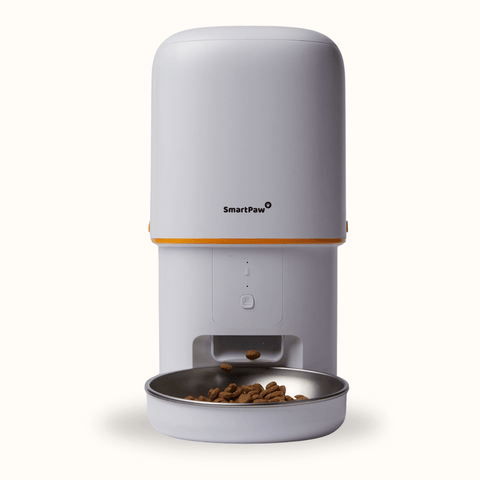Cats are independent creatures, but they still require proper care to maintain their health. Many common feline health issues can be prevented or managed with early detection and proactive care. In this guide, we’ll explore the 10 most common health problems in cats and how you can prevent them.

1. Obesity
Excess weight can lead to diabetes, arthritis, and heart disease.
Prevention Tips:
-
Feed portion-controlled meals instead of free-feeding.
-
Use an automatic feeder to manage portion sizes.
-
Encourage regular exercise with interactive toys and playtime.
2. Dental Disease
Plaque buildup and gum disease can cause pain, bad breath, and tooth loss.
Prevention Tips:
-
Brush your cat’s teeth regularly with a pet-safe toothpaste.
-
Provide dental treats and toys that help reduce plaque.
-
Schedule annual dental checkups with your vet.
3. Kidney Disease
Chronic kidney disease (CKD) is common in older cats and can lead to dehydration and weight loss.
Prevention Tips:
-
Ensure your cat has access to fresh water at all times.
-
Feed a diet rich in moisture (wet food is preferable to dry food).
-
Schedule regular vet checkups to monitor kidney function.
4. Urinary Tract Infections (UTIs) and Bladder Stones
Symptoms include frequent urination, straining, and blood in urine.
Prevention Tips:
-
Increase your cat’s water intake with a water fountain.
-
Feed a balanced diet formulated to support urinary health.
-
Maintain a clean litter box to reduce stress-related urinary issues.
5. Parasites (Fleas, Ticks, and Worms)
External and internal parasites can cause itching, anemia, and digestive problems.
Prevention Tips:
-
Use flea and tick preventatives year-round.
-
Regularly deworm your cat as recommended by your vet.
-
Keep bedding and living areas clean.
6. Respiratory Infections
Upper respiratory infections (URIs) are common in cats, especially those in multi-cat households.
Prevention Tips:
-
Keep your cat’s vaccinations up to date.
-
Reduce exposure to sick cats and crowded environments.
-
Provide a stress-free, clean living space.
7. Diabetes
Often linked to obesity, diabetes can lead to serious complications if left untreated.
Prevention Tips:
-
Maintain a healthy weight through portion control and regular exercise.
-
Choose high-protein, low-carbohydrate foods.
-
Monitor your cat’s weight and symptoms, such as excessive thirst or urination.
8. Hyperthyroidism
A common condition in older cats that causes weight loss despite an increased appetite.
Prevention Tips:
-
Have regular blood tests for early detection.
-
Watch for signs like excessive thirst, hyperactivity, or vomiting.
-
Consult your vet for treatment options, including diet management.
9. Allergies
Cats can be allergic to food, pollen, dust, or even their litter.
Prevention Tips:
-
Identify and eliminate allergens in your home.
-
Feed a hypoallergenic diet if food allergies are suspected.
-
Use an air purifier to reduce airborne allergens.
10. Hairballs and Digestive Issues
Hairballs can cause vomiting and digestive blockages.
Prevention Tips:
-
Brush your cat regularly to reduce loose hair.
-
Provide a fiber-rich diet to aid digestion.
-
Offer hairball control treats or supplements.
Conclusion
By being proactive about your cat’s health, you can prevent many common feline illnesses before they become serious. Regular vet visits, proper nutrition, hydration, and a clean environment are key to keeping your cat happy and healthy.
Want to make feeding and hydration easier? Check out Smartpaw’s Automatic Feeders and Water Fountains to support your cat’s well-being!









